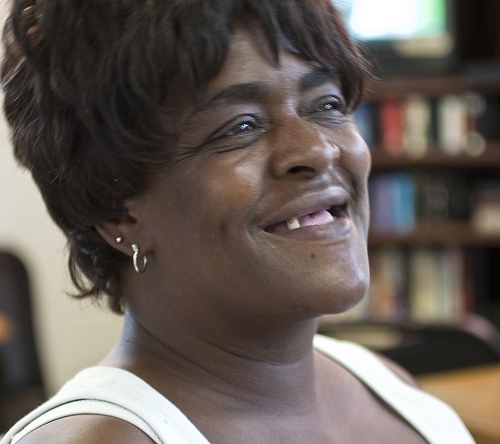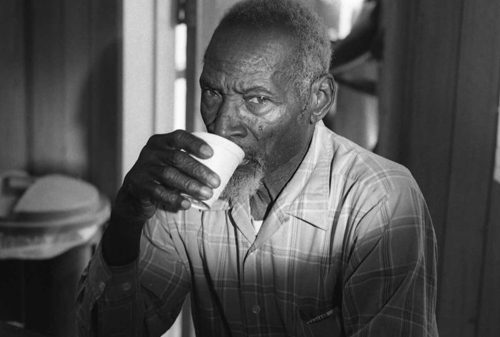Helping Face to Face

In an online world, there is still a place for personal contact.
Our help at the Joseph House is given person to person, in the flesh. This way we get a grasp of the details that cannot be conveyed in an e-mail, details that help to express the uniqueness of each person and the many sides to his or her circumstances.
Person to person, we see the missing teeth and the shoes held together with duct tape. We see the mismatched clothes that came from the donation bin. We see arthritic hands and swollen ankles and feeble legs that need the assistance of a cane. We see calloused skin rough as sandpaper from years of hard work in the sun. We hear words slurred in a haze of alcohol. We hear broken English and uncouth grammar and slang. We hear wisdom and sobbing, whispering and yelling.
Person to person, we see faces, and the windows of the soul, the eyes: blood-shot eyes, eyes filled with tears, eyes flaring in anger, nervous eyes that flit about, eyes clear and bright, and eyes that refuse to make contact with our own. Up close, we also detect the smell of unwashed skin that comes from living outside in beastly hot weather, the sharp mustiness that clothes pick up from decaying houses, and the acrid odor that comes from looking in garbage cans for food.

Most importantly, person to person, we experience the person, and not just the eviction notice or the overdue electric bill or the other bits of fallout from poverty. We can reach out and touch someone, and not just figuratively. Simple human contact shoulders many a burden.
The greatest poverty is to feel alone, unloved, and unwanted. Face to face, person to person, we give and receive the gift of each other’s presence. We can meet Christ waiting for us to love Him in the poor, waiting for us to wake up from our indifference, waiting for us to overcome our fear and prejudice, waiting for us to open our heart to the person in front of us.
